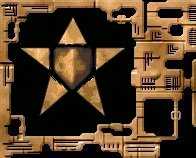CVG: Can you explain how the trade aspect of the game has changed and evolved?
Meier: We’re really excited about the expanded trade system. A big change is that trade has been abstracted to the diplomacy and trade advisors and will no longer require you to use caravan units. Trade goods are comprised of luxuries and resources. Luxuries are goods that improve the happiness of your cities. Resources are needed to make certain military units (iron, for example, is needed to make the Swordsman or Roman Legion units)
Many resources will not be visible on the world map until you have unlocked the secrets of a related technology. You will not see iron on the map, for example, until your scientists have discovered Iron Working. Likewise, uranium will not be visible until you have discovered Fission. The game will distribute resources throughout the map so that each civilisation will have access to several nearby resources. Additionally, simply by allocating population points to work the tiles inside your city radius, there is a chance each turn that your citizens will discover a new source of a known resource.
You can trade goods with another civilisation as long as you have a road, harbour, or airport that connects your civilization with theirs. Once you have a trade route, you simply negotiate with the other civilisation in the diplomacy screen.
Meier: We’re really excited about the expanded trade system. A big change is that trade has been abstracted to the diplomacy and trade advisors and will no longer require you to use caravan units. Trade goods are comprised of luxuries and resources. Luxuries are goods that improve the happiness of your cities. Resources are needed to make certain military units (iron, for example, is needed to make the Swordsman or Roman Legion units)
Many resources will not be visible on the world map until you have unlocked the secrets of a related technology. You will not see iron on the map, for example, until your scientists have discovered Iron Working. Likewise, uranium will not be visible until you have discovered Fission. The game will distribute resources throughout the map so that each civilisation will have access to several nearby resources. Additionally, simply by allocating population points to work the tiles inside your city radius, there is a chance each turn that your citizens will discover a new source of a known resource.
You can trade goods with another civilisation as long as you have a road, harbour, or airport that connects your civilization with theirs. Once you have a trade route, you simply negotiate with the other civilisation in the diplomacy screen.
what i mean by that is, i don't think players will barter special resources and luxeries with the AI once a player has secured everything they need...so in order to make trade profitable, i think that gold will change hands when you trade special resources and luxeries...and this gold won't come from any civ's treasury...it will be extra income from trade routes...so this system seems like the autotrade route feature of SMAC, once you sign a treaty with another civ and establish a physical link to that civ, then you start raking in the gold that comes from trade
is this the vibe that others of you out there are getting?
*sign a treaty
*establish a physical link to that civ (road, harbor, airport)
*then all special resources and luxeries from both civs are available to all of the cities on the trade grid
*trade routes also earns the civ gold
if trade routes do generate gold then it would encourage civs to trade...if not i could see most human players ignoring trade, except in a few rare instances




Comment